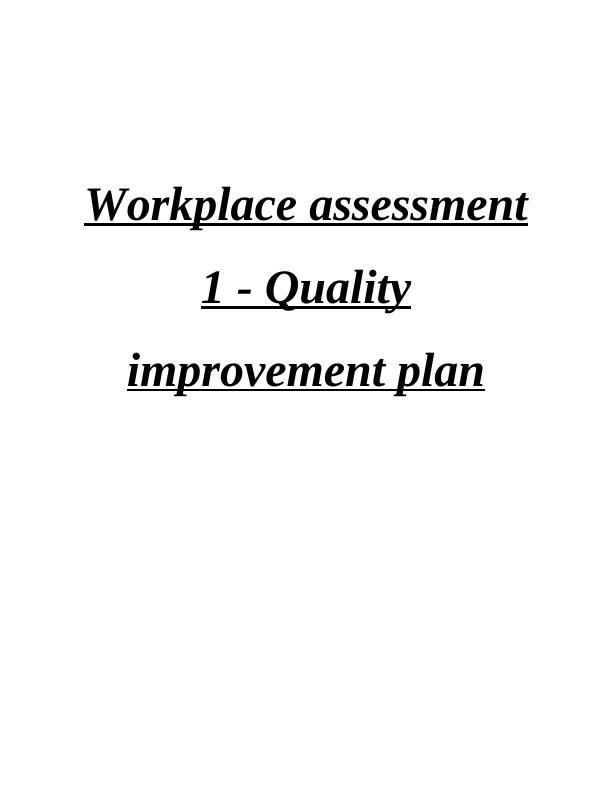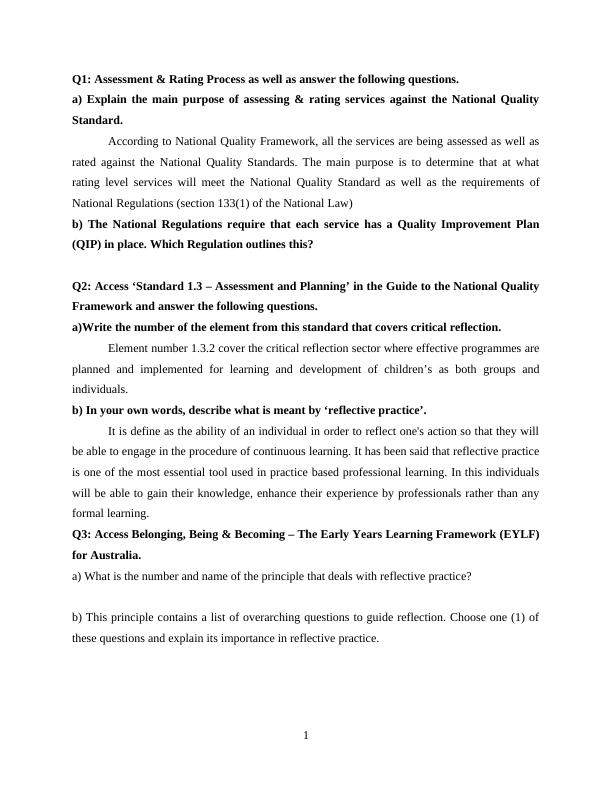Workplace Assessment: Quality Improvement Plan
10 Pages2940 Words80 Views
Added on 2023-01-19
About This Document
This document discusses workplace assessment and the importance of quality improvement plans. It covers the National Quality Standard, regulations, and the role of stakeholders. It also explores compliance processes and resources available for support. Additionally, it addresses professional development opportunities and reflective practice.
Workplace Assessment: Quality Improvement Plan
Added on 2023-01-19
ShareRelated Documents
End of preview
Want to access all the pages? Upload your documents or become a member.
Early Childhood Education Cert III CHCECE005 Assignments 1 & 2
|5
|1188
|388
CHCECE009 Task 2 and 3 - Early Year Learning Framework and Educator Roles
|15
|4137
|322
Diploma of Early Childhood Education and Care Module National Quality Framework Qualification(s) CHC50113 Diploma of Early Childhood Education and Care
|13
|3094
|113
Ensuring Health and Safety of Children in Early Childhood Education and Care Services
|42
|6271
|463
Early Childhood Education and Care in Australia
|7
|1588
|401
Importance of Ensuring Health and Safety of Children in Early Education and Care Services
|12
|3028
|3



